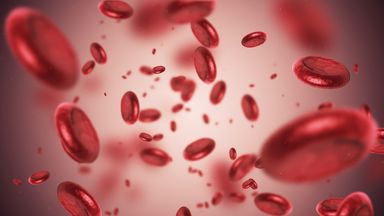Another infant has died of whooping cough in the UK, health officials have confirmed.
The child died in June, according to the Health Security Agency (UKHSA).
An outbreak of whooping cough, which affects the lungs and breathing tubes and spreads very easily, began in November last year.
There has been 10 deaths from the infection in the UK since.
Whooping cough: What are the symptoms and who can get a vaccine?
The number of cases of the infection has also risen above 10,000, according to UKHSA.
Latest data shows whooping cough cases peaked in the UK in May this year and high levels continued into June with 2,427 cases reported.
While most cases were in those aged 15 years or older, more than 300 have been reported in babies under three months, who are at greatest risk of dying or developing severe complications from the infection.
The agency said confirmed cases of whooping cough from April to June 2024 are "very high" and exceed cases in any quarter since the last major outbreak in 2012.
It has now urged pregnant women to get vaccinated to protect their babies from birth.
Evidence from England shows that vaccination at the right time during pregnancy is highly effective, giving 92% protection against infant death.
But data from the UKHSA showed that the uptake of the vaccination in pregnant women continued to decline in March this year, with only 58.9% compared to 72.6% in 2017.
Dr Mary Ramsay, director of immunisation at the UKHSA said: "With cases continuing to rise and sadly 10 infant deaths since the outbreak began last November, ensuring women are vaccinated in pregnancy has never been more important.
"Our thoughts and condolences are with those families who have so tragically lost their baby."
Keep up with all the latest news from the UK and around the world by following Sky News
Tap hereAll babies are given three doses of the six-in-one jab at the ages of eight, 12 and 16 weeks in order to protect against whooping cough and other serious diseases such as diphtheria and polio.
Infants of pre-school age are then offered a booster at three years and four months.
Disclaimer: The copyright of this article belongs to the original author. Reposting this article is solely for the purpose of information dissemination and does not constitute any investment advice. If there is any infringement, please contact us immediately. We will make corrections or deletions as necessary. Thank you.




